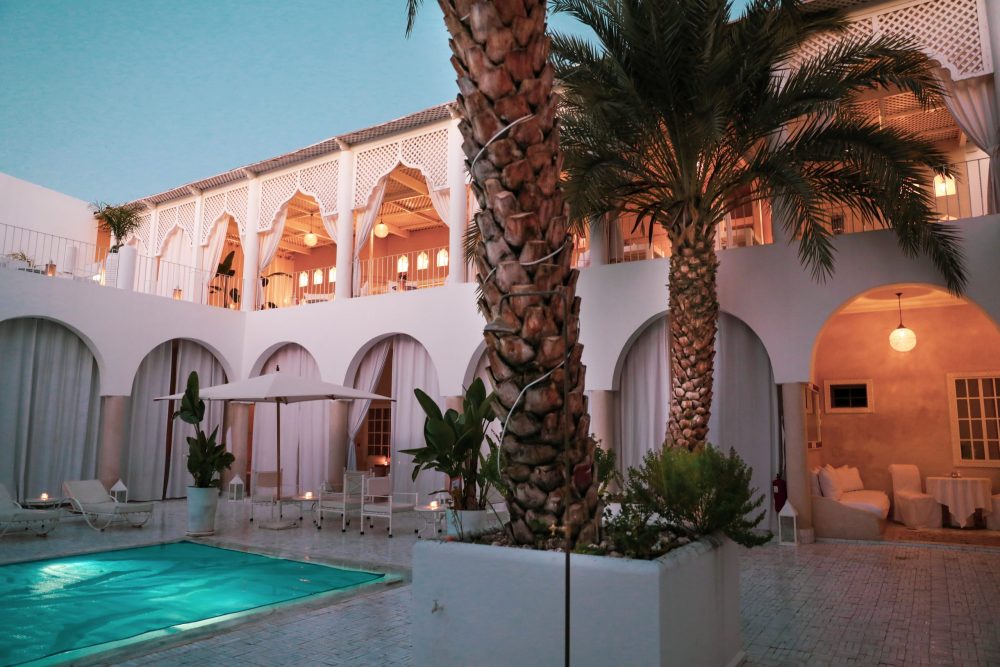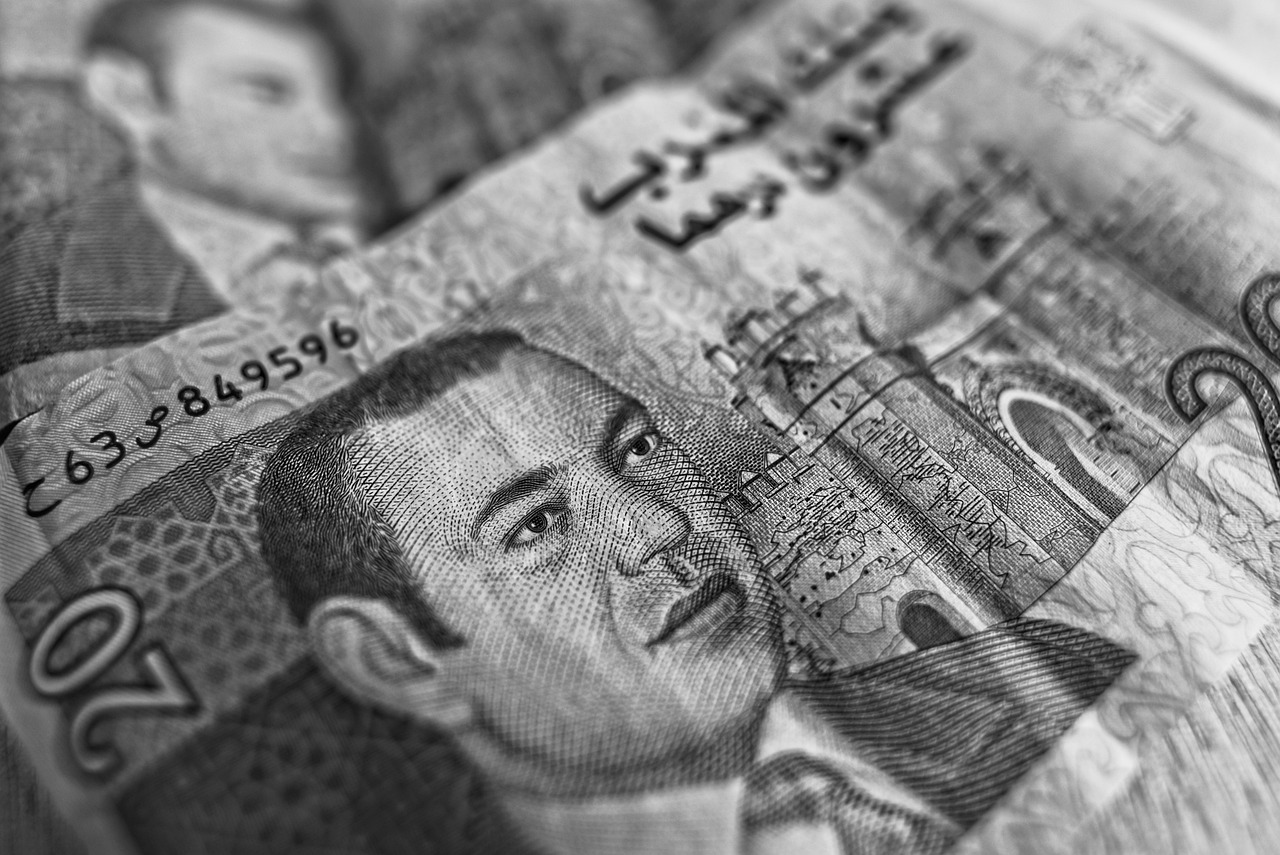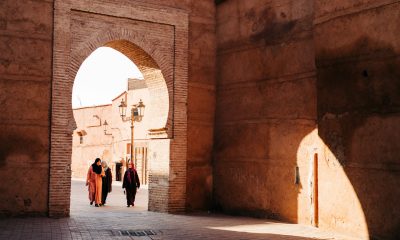Africa
The Moroccan Tourism Sector Is Beyond a Recovery
The Moroccan tourism sector registered a strong growth in 2022. The ICEX report in question indicates that Morocco has again become a preferred destination for its two best European partners. In 2021, Morocco welcomed just under 1.2 million foreign tourists, including half a million from France, the leader of visits to the Kingdom. Followed by Spain with nearly 100,000 visitors.

Things are going well for the Moroccan tourism sector which continues to show good performance. After three years of interruption, Moroccan tourism is picking up. The proof is the statistics that show indicators in green.
Since the opening of the borders, the recovery has been crescendo to the point of reaching peaks, as evidenced by the latest report of the ICEX. It shows that before the pandemic, Morocco has become one of the most popular destinations, especially for French and Spanish tourists. A position that the destination has managed to recover since the lifting of restrictions.
Read more about the Moroccan tourism sector and find the most important economic news from around the world with the Born2Invest mobile app.
Strong growth for the Moroccan tourism sector
To this end, the report in question indicates that Morocco has again become a preferred destination for its two best European partners. In 2021, Morocco welcomed just under 1.2 million foreign tourists, including half a million from France, the leader of visits to the Kingdom. Followed by Spain with nearly 100,000 visitors. Belgian tourists were about 65,000. Those from the United Kingdom are estimated at 56,000 and the United States at 66,000. However, these figures, still decimated by the consequences of the pandemic, have increased sharply in 2022.
In fact, the number of foreign tourists has risen to more than five million, including 1.5 million from France. During this period, the country with the strongest growth remains Spain. The figures show that the rate of recovery of the Moroccan tourism sector from Spain has climbed by 102%.
Not only has Spain increased tenfold the number of people who decide to visit Morocco compared to 2021, but it also remains the only European country whose number of tourists has increased significantly compared to the data of the year before the pandemic. In fact, in 2019, 880,000 Spaniards visited Morocco, while in 2022 this number exceeded 900,000. Only France, with the 1.5 million tourists, represents the highest rate with 14% of the total.
1.9 million tourists visited Morocco by the end of February 2023
Spain, meanwhile, is in second place with 8%, followed by the United Kingdom with 480,000 tourists, or 4%. On the other hand, a significant drop was noted in tourists from Germany, with 2% and only 171,000 tourists.
At this stage, the figures remain far from the achievements of four years ago. Note that more than 400,000 Germans had chosen Morocco as a tourist destination before the pandemic crisis.
Data corroborated by the Observatory of Tourism noted that tourist arrivals at border crossings reached about 1.9 million tourists at the end of February 2023, an increase of 464% compared to the previous year. The Observatory of Tourism states in its statistics that the arrivals of foreign tourists have jumped by 703%.
Regarding foreign tourists, Spain remains the main emitting market with a recovery rate of 136% compared to January-February 2023, followed by the United Kingdom (125%) and Italy (103%). In contrast, German tourists have not been numerous to Morocco with a recovery rate of 60%. Certainly, the figures are edifying, but Morocco does not intend to stop there. It is planned to exceed, this year, the number of tourists who visited the kingdom in 2019.
The goal is to reach 17.5 million tourists and generate €11 billion in foreign exchange. This idea is reinforced by Morocco’s image in the world, largely due to its sporting successes. The fourth place of the Atlas Lions in the World Cup in Qatar, as well as the joint bid with Spain and Portugal to host the 2030 World Cup, further strengthen the country’s attractiveness. The Moroccan tourism sector remains an important part of the country’s economy.
__
(Featured image by rigel via Unsplash)
DISCLAIMER: This article was written by a third party contributor and does not reflect the opinion of Born2Invest, its management, staff or its associates. Please review our disclaimer for more information.
This article may include forward-looking statements. These forward-looking statements generally are identified by the words “believe,” “project,” “estimate,” “become,” “plan,” “will,” and similar expressions. These forward-looking statements involve known and unknown risks as well as uncertainties, including those discussed in the following cautionary statements and elsewhere in this article and on this site. Although the Company may believe that its expectations are based on reasonable assumptions, the actual results that the Company may achieve may differ materially from any forward-looking statements, which reflect the opinions of the management of the Company only as of the date hereof. Additionally, please make sure to read these important disclosures.
First published in LES ECO.ma, a third-party contributor translated and adapted the article from the original. In case of discrepancy, the original will prevail.
Although we made reasonable efforts to provide accurate translations, some parts may be incorrect. Born2Invest assumes no responsibility for errors, omissions or ambiguities in the translations provided on this website. Any person or entity relying on translated content does so at their own risk. Born2Invest is not responsible for losses caused by such reliance on the accuracy or reliability of translated information. If you wish to report an error or inaccuracy in the translation, we encourage you to contact us.

-

 Markets15 hours ago
Markets15 hours agoCoffee Prices Decline Amid Rising Supply and Mixed Harvest Outlooks
-

 Africa2 weeks ago
Africa2 weeks agoBank of Africa Launches MAD 1 Billion Perpetual Bond to Boost Capital and Drive Growth
-

 Crypto1 week ago
Crypto1 week agoBitcoin Recovers After U.S. Strikes Iran, While Altcoins Face Sharp Losses
-

 Africa6 days ago
Africa6 days agoMorocco’s Wheat Dependency Persists Despite Improved Harvest























